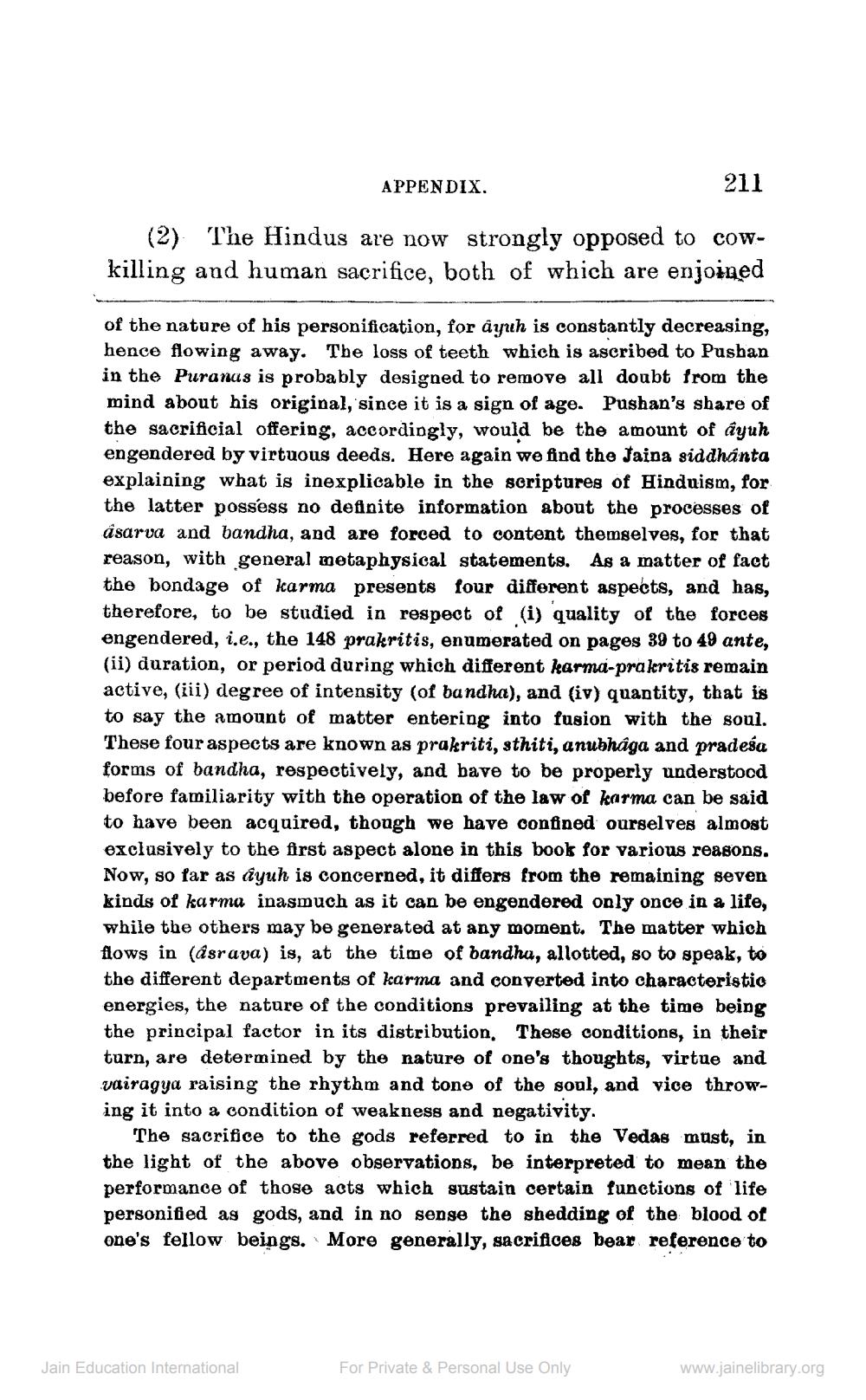________________
APPENDIX.
211
(2) The Hindus are now strongly opposed to cowkilling and human sacrifice, both of which are enjoined
of the nature of his personification, for ayuh is constantly decreasing, hence flowing away. The loss of teeth which is ascribed to Pushan in the Puranas is probably designed to remove all doubt from the mind about his original, since it is a sign of age. Pushan's share of the sacrificial offering, accordingly, would be the amount of ayuh engendered by virtuous deeds. Here again we find the Jaina siddhanta explaining what is inexplicable in the scriptures of Hinduism, for the latter possess no definite information about the processes of ásarva and bandha, and are forced to content themselves, for that reason, with general metaphysical statements. As a matter of fact the bondage of karma presents four different aspects, and has, therefore, to be studied in respect of (i) quality of the forces engendered, i.e., the 148 prakritis, enumerated on pages 39 to 49 ante, (ii) duration, or period during which different karma-prakritis remain active, (iii) degree of intensity (of bandha), and (iv) quantity, that is to say the amount of matter entering into fusion with the soul. These four aspects are known as prakriti, sthiti, anubhaga and pradesa forms of bandha, respectively, and bave to be properly understood before familiarity with the operation of the law of karma can be said to have been acquired, though we have confined ourselves almost exclusively to the first aspect alone in this book for various reasons. Now, so far as ayuh is concerned, it differs from the remaining seven kinds of karma inasmuch as it can be engendered only once in a life, while the others may be generated at any moment. The matter which flows in (asrava) is, at the time of bandha, allotted, so to speak, to the different departments of karma and converted into characteristio energies, the nature of the conditions prevailing at the time being the principal factor in its distribution. These conditions, in their turn, are determined by the nature of one's thoughts, virtue and vairagya raising the rhythm and tone of the soul, and vice throwing it into a condition of weakness and negativity.
The sacrifice to the gods referred to in the Vedas must, in the light of the above observations, be interpreted to mean the performance of those acts which sustain certain functions of life personified as gods, and in no sense the shedding of the blood of one's fellow beings. More generally, sacrifices bear reference to
Jain Education International
For Private & Personal Use Only
www.jainelibrary.org




